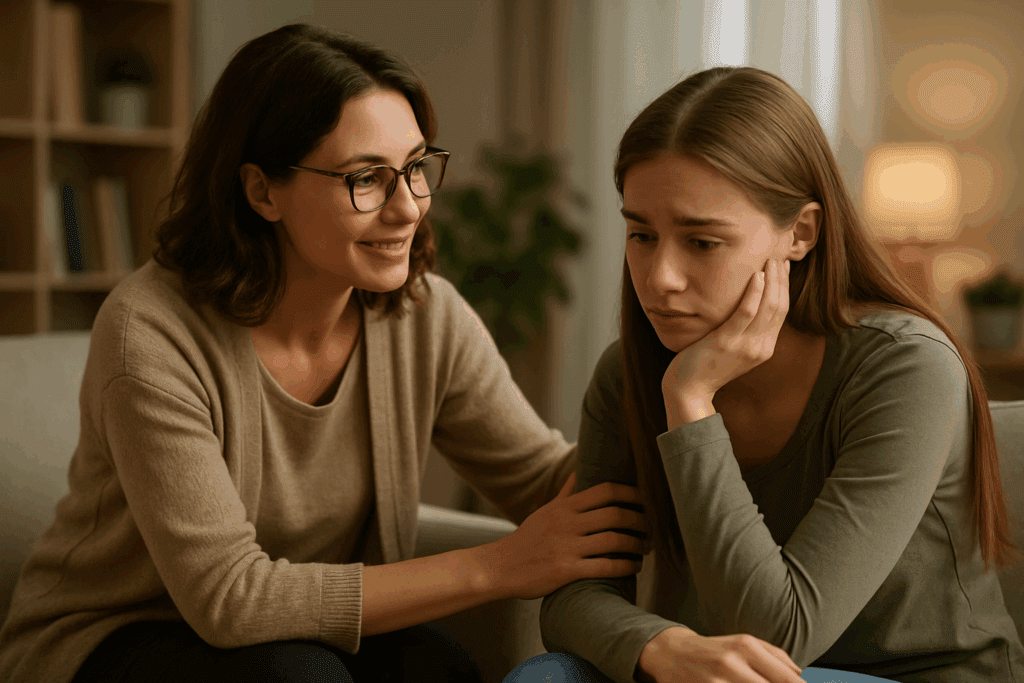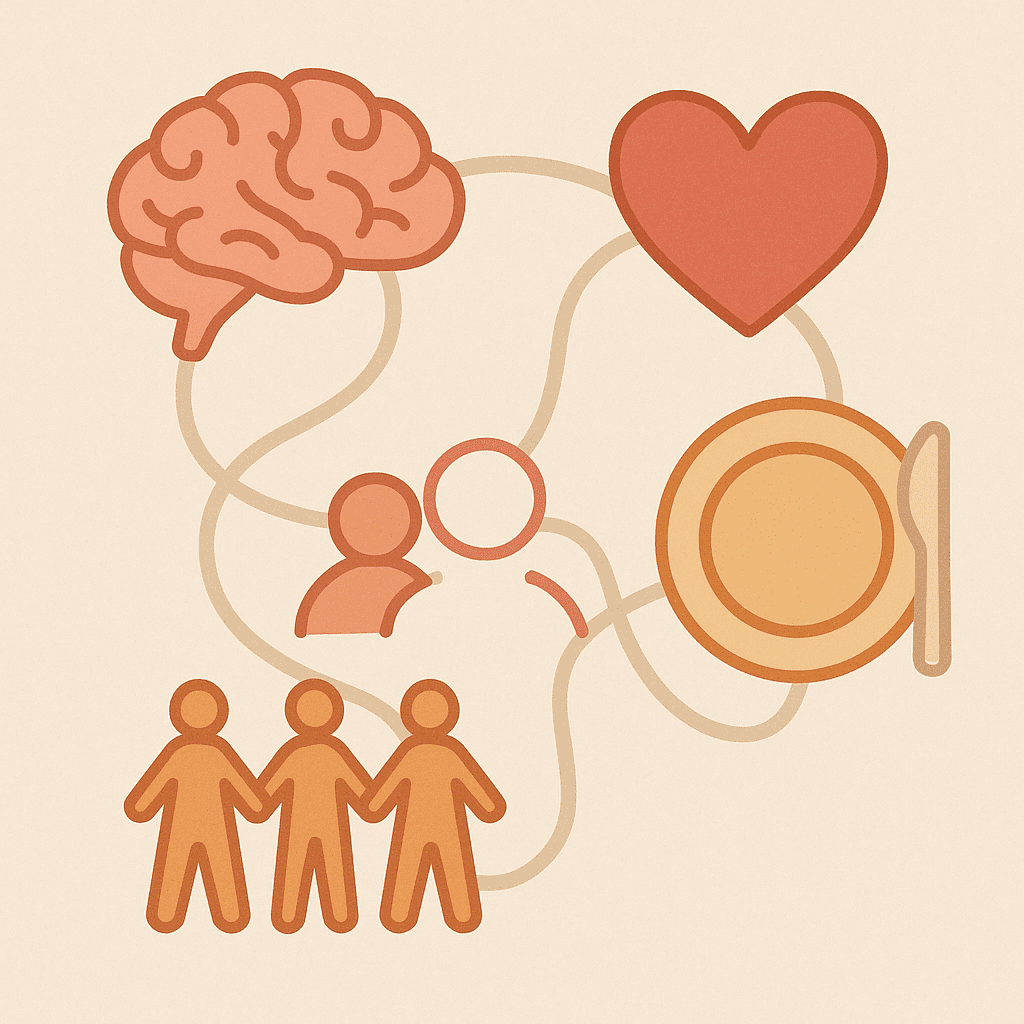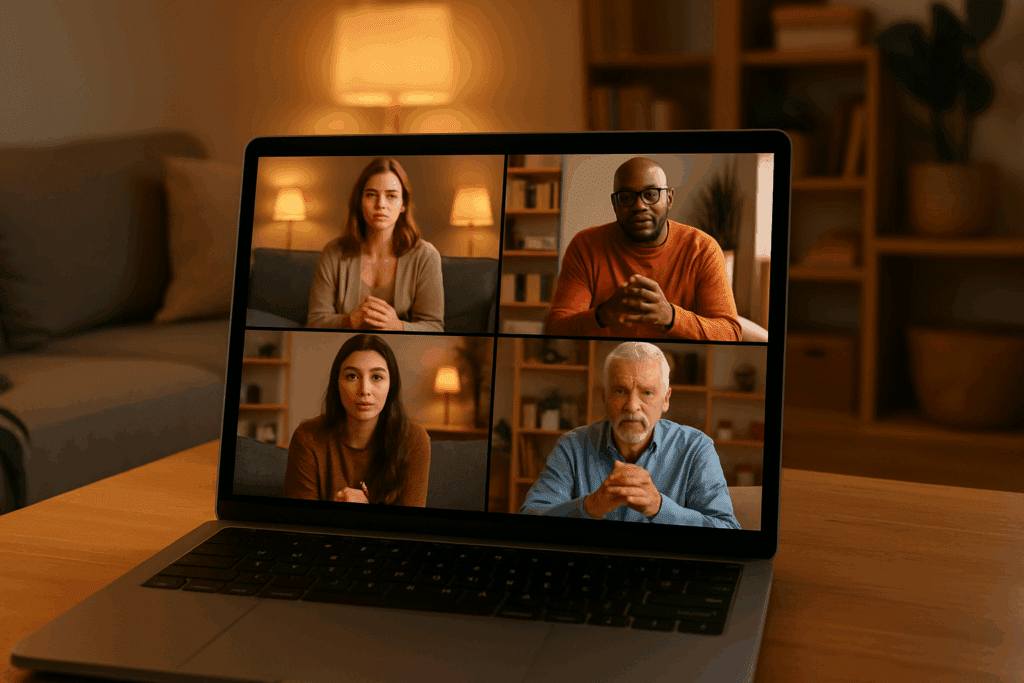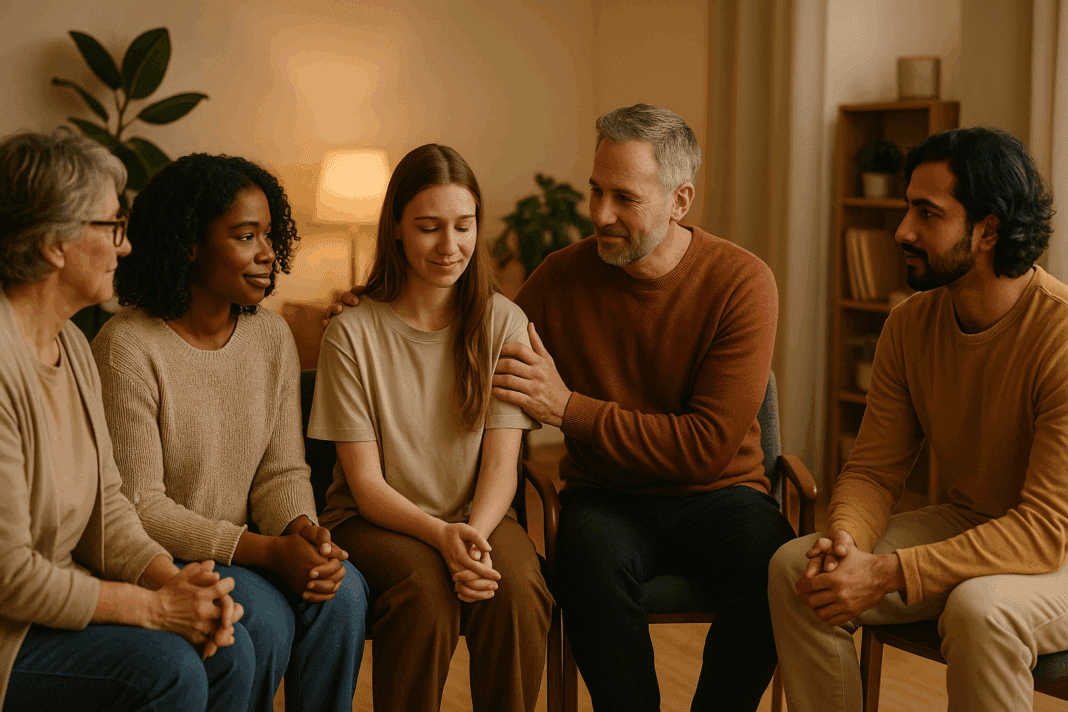The journey to achieving mental wellness and healthier eating habits is often a deeply personal and challenging one, especially for individuals living with eating disorders. These conditions, which include anorexia nervosa, bulimia nervosa, binge eating disorder, and other disordered eating patterns, are complex mental health issues that intertwine psychological, biological, and sociocultural factors. They are not mere lifestyle choices or phases but clinically recognized conditions requiring comprehensive and compassionate support. This is where the National Alliance for Eating Disorders (NAED) plays an essential role. As a leading eating disorder association, the NAED provides invaluable eating disorder resources, support groups, and professional help networks to foster recovery and promote long-term wellness.
You may also like: How to Stop Emotional Eating and Regain Control: Mindful Nutrition Strategies That Support a Healthier Lifestyle

Understanding the National Alliance for Eating Disorders and Its Mission
Founded with a clear and compassionate purpose, the National Alliance for Eating Disorders has become one of the most trusted names in the field of mental health advocacy. At its core, the organization exists to eliminate the stigma surrounding eating disorders and to provide access to quality care for all individuals, regardless of age, gender, race, or socioeconomic status. By creating access points through community outreach, education, and clinical support, the Alliance for Eating Disorders creates a bridge between those struggling and the professionals who can help them heal.
The NAED operates with the mantra “we fight for eating disorder recovery,” a sentiment that reflects its mission to confront the societal misconceptions that often prevent people from seeking timely help. The organization collaborates with healthcare providers, academic institutions, and mental health professionals to ensure that evidence-based treatments are widely accessible. Furthermore, it advocates for policies that support mental health equity and promotes research into innovative therapeutic approaches. Through national awareness campaigns, training programs, and the promotion of eating disorder help groups, the NAED continues to be a driving force in reshaping the conversation around eating disorders.

The Importance of Early Intervention and Accessible Eating Disorder Resources
Timely and appropriate intervention is critical in the successful treatment of eating disorders. Research consistently shows that the earlier an individual receives care, the higher their chances of full recovery. This makes access to eating disorder resources more than a convenience; it becomes a lifeline. The National Alliance for Eating Disorders acknowledges this urgency and responds with a comprehensive array of services that are both accessible and inclusive.
Among the most vital offerings are their professionally facilitated eating disorder support groups. These groups provide safe, judgment-free spaces where individuals can share their struggles, celebrate victories, and find strength in shared experiences. Unlike informal online forums, these support groups are led by licensed mental health professionals, ensuring that the guidance offered is both empathetic and clinically sound. Additionally, the NAED offers a regularly updated database of treatment providers, making it easier for individuals and their families to connect with qualified clinicians in their area.
Education is another cornerstone of the NAED’s resource network. From free webinars to downloadable toolkits, the Alliance empowers individuals, caregivers, and even educators with the knowledge needed to identify early signs of disordered eating. These efforts work in tandem with their eating disorder helpline, which offers real-time guidance and referrals. For many individuals, contacting the helpline is their first step toward healing, making it a critical part of the recovery journey.
Support Networks: The Value of Eating Disorder Help Groups and Peer Connection
Healing from an eating disorder is rarely a solitary journey. Recovery often flourishes in the context of connection—where individuals can be seen, heard, and supported without judgment. This is the foundational principle behind the NAED’s robust offering of eating disorder help groups. Whether in person or virtual, these groups serve as anchors in the recovery process, helping participants develop resilience and community.
Peer support is particularly transformative because it allows participants to connect with others who have faced similar challenges. These shared experiences foster empathy and reduce the isolation that so often accompanies eating disorders. Moreover, the groups are structured to offer continuity and consistency, which are essential for establishing trust and fostering personal growth. The facilitators, typically licensed clinicians, guide conversations with sensitivity, ensuring a balance between openness and therapeutic focus.
The groups are also tailored to meet diverse needs, including specialized anorexia support groups and those for caregivers, adolescents, and individuals in various stages of recovery. This inclusivity reflects the NAED’s commitment to acknowledging the uniqueness of each person’s struggle. Through regular attendance, participants not only benefit from shared wisdom but also contribute to a collective healing environment. In this way, eating disorder help groups become both a resource and a refuge.

Connecting Through Crisis: The Role of the Eating Disorder Helpline and Hotline Services
For individuals in the midst of a crisis, having immediate access to support can make a life-saving difference. The National Alliance for Eating Disorders understands this need and operates a dedicated eating disorder helpline, staffed by trained professionals who provide real-time assistance. Whether someone is seeking guidance for themselves or a loved one, this service offers critical intervention at pivotal moments.
In many cases, the helpline serves as the first point of contact for individuals who have never before sought treatment. The conversations that begin here often lead to referrals for long-term care, support groups, or specialized treatment programs. What sets the eating disorder hotline apart is the level of compassion and professionalism with which each call is handled. The team recognizes that reaching out takes courage, and they meet that bravery with empathy and actionable support.
Beyond crisis intervention, the hotline serves as a resource hub, offering information about symptoms, treatment options, and local providers. It bridges the gap between recognition and recovery, often providing the momentum individuals need to pursue formal help. For those unsure of what steps to take next, the helpline offers clarity and reassurance. Its presence is a testament to the NAED’s unwavering dedication to making help accessible at every stage of the recovery journey.
Educational Outreach: Equipping Communities with Knowledge and Compassion
Awareness is a powerful tool in combating eating disorders, and the National Alliance for Eating Disorders is deeply committed to educational outreach. The organization believes that prevention and early detection begin with informed communities. To that end, the NAED develops and disseminates a wide array of educational materials designed to foster understanding and reduce stigma.
From school-based programs to professional development workshops, the NAED’s educational initiatives reach diverse audiences. For students, these programs emphasize body positivity, media literacy, and the importance of seeking help early. Educators are equipped with strategies for identifying at-risk students and responding with empathy. For healthcare providers, continuing education modules ensure that clinicians remain informed about the latest research and treatment modalities.
These initiatives are not only preventative but also transformative. They encourage open dialogue about mental health and eating habits, reducing the shame that often silences those in need. Through partnerships with universities, hospitals, and community centers, the NAED ensures that its message reaches those who need it most. In doing so, it fulfills its role as both an eating disorder association and a catalyst for social change.

Specialized Support: Anorexia Support Groups and Tailored Care Approaches
Eating disorders manifest differently in each individual, necessitating customized care strategies. Among the most serious and life-threatening forms is anorexia nervosa, a condition marked by severe food restriction, intense fear of weight gain, and a distorted body image. The NAED addresses the unique challenges of this condition through its specialized anorexia support groups, which offer targeted guidance within a supportive peer environment.
These groups are particularly important because anorexia often involves complex psychological dynamics and medical risks. Recovery requires not just weight restoration but also the healing of deeply ingrained thought patterns and emotional responses. Within anorexia support groups, participants find a space where their struggles are understood on a profound level. They engage in conversations that go beyond surface behaviors, exploring the emotional triggers and societal pressures that fuel their illness.
In addition to group support, the NAED offers individualized referrals to practitioners experienced in treating anorexia. These may include dietitians, therapists, and medical doctors who collaborate to provide holistic care. This multidisciplinary approach underscores the Alliance’s recognition that recovery is not linear, and that each person’s path is valid and deserving of respect. Through its tailored resources and expert guidance, the NAED continues to elevate the standard of care for those battling anorexia nervosa.
Building Bridges to Treatment: Partnering with Professionals and Institutions
Access to high-quality care is a fundamental right, yet many individuals face barriers when seeking treatment for eating disorders. The National Alliance for Eating Disorders addresses this challenge by forging partnerships with treatment centers, hospitals, and mental health professionals. These collaborations expand the network of care and ensure that individuals can find support regardless of their geographic location or financial situation.
The NAED’s referral system is one of its most impactful offerings. By maintaining a vetted database of providers, the organization helps individuals connect with clinicians who meet their specific needs. This includes providers who offer sliding scale fees, culturally competent care, and experience with co-occurring disorders such as anxiety or depression. The system also supports continuity of care by encouraging communication between referring providers and ongoing treatment teams.
Moreover, the NAED actively participates in research and advocacy initiatives aimed at improving access to treatment. By working alongside universities and healthcare institutions, it contributes to the development of innovative therapies and evidence-based practices. These efforts enhance not only the quality of care but also the public’s understanding of eating disorders as serious and treatable conditions. In every partnership, the Alliance acts as a unifying force, aligning the efforts of various stakeholders toward a common goal: lasting recovery for all.

Expanding Access Through Digital Innovation and Virtual Services
In an increasingly digital world, the need for virtual support has become more apparent than ever. The National Alliance for Eating Disorders has embraced this evolution by expanding its online offerings, ensuring that help remains accessible regardless of physical location. From virtual eating disorder support groups to online educational seminars, the Alliance leverages technology to remove barriers and broaden its reach.
These digital platforms are particularly beneficial for individuals living in rural areas or those with mobility limitations. Virtual groups replicate the therapeutic value of in-person meetings while offering greater convenience and anonymity. Participants can join from the comfort of their homes, making it easier to integrate support into their daily lives. These groups maintain the same standards of clinical oversight, ensuring that they remain safe and effective spaces for healing.
The organization also offers a comprehensive website that houses a wealth of eating disorder resources. Visitors can access blogs, recovery stories, treatment directories, and updates on advocacy efforts. This centralized hub empowers users to explore information at their own pace, deepening their understanding and engagement. Through its digital innovations, the NAED continues to uphold its mission of inclusive, person-centered care in an ever-changing world.

Why the Work of the National Alliance for Eating Disorders Matters
Eating disorders do not discriminate—they affect people of all genders, ages, races, and socioeconomic backgrounds. Despite this, access to care remains uneven, and societal stigma continues to be a major barrier to seeking help. The work of the National Alliance for Eating Disorders is crucial in dismantling these barriers and creating a world where recovery is not just possible but probable.
By providing an array of services—including an eating disorder hotline, eating disorder support groups, and comprehensive educational outreach—the Alliance supports individuals through every phase of the recovery journey. It stands at the intersection of advocacy, education, and direct service, embodying the belief that healing requires more than clinical intervention; it demands community, compassion, and courage.
The NAED’s unwavering commitment to equity and accessibility reflects the highest standards of the EEAT framework: Experience, Expertise, Authoritativeness, and Trustworthiness. Its programs are rooted in evidence, delivered by professionals, and validated by the lived experiences of those who have walked the recovery path. This multifaceted approach not only changes lives—it saves them.
Frequently Asked Questions: Eating Disorder Support and the Role of the National Alliance for Eating Disorders
What makes the National Alliance for Eating Disorders different from other mental health organizations?
Unlike many broader mental health initiatives, the National Alliance for Eating Disorders specializes exclusively in eating disorder prevention, intervention, and recovery support. This singular focus allows the organization to develop deep, evidence-based expertise tailored to the nuanced needs of those affected by disordered eating. As both a clinical and community-centered eating disorder association, the Alliance offers direct access to care through referral networks, helplines, and therapeutic groups that are uniquely designed for this population. The organization also fosters a sense of identity and advocacy by promoting its mission, “we fight for eating disorder recovery,” through legislative efforts and awareness campaigns. This multi-pronged approach, grounded in experience and research, positions the Alliance for Eating Disorders as a trusted leader in this highly specialized field.
How do eating disorder help groups empower individuals in recovery beyond peer support?
Eating disorder help groups provide more than just a place to share stories; they actively empower members through skill-building, accountability, and structured therapeutic dialogue. These groups often integrate cognitive behavioral techniques and mindfulness exercises that help participants reframe harmful thoughts and regulate emotional responses. Beyond emotional validation, participants gain tools to navigate triggering environments, rebuild a healthy relationship with food, and recognize relapse warning signs. Facilitated by trained clinicians, these eating disorder support groups offer continuity and clinical oversight without replicating a therapy session. The group setting also fosters leadership and personal growth, as many individuals evolve from seeking support to providing it for others.
What role does the eating disorder hotline play in reaching underserved populations?
The eating disorder hotline offered by the Alliance for Eating Disorders serves as a vital bridge to care, especially for individuals in underserved or rural communities where specialized treatment options are scarce. The hotline provides real-time access to professionally trained staff who can assess needs, offer support, and refer callers to appropriate services, regardless of geographic limitations. For many, the hotline is the first point of contact, particularly for those who may not have internet access or feel safe seeking help online. In this way, the hotline supports equity in healthcare by reducing logistical and emotional barriers to entry. It exemplifies the mission of the national alliance for eating disorders to provide inclusive and accessible care across all demographics.
How does the national eating disorder landscape influence the services provided by advocacy organizations?
The national eating disorder landscape is constantly evolving due to emerging research, shifts in societal attitudes, and legislative policy changes. Organizations like the National Alliance for Eating Disorders respond by adapting their programs to align with current best practices and public needs. For instance, recent attention to the rise in eating disorders among men and nonbinary individuals has led the Alliance to develop gender-inclusive support groups. Similarly, increased awareness of the link between trauma and disordered eating has prompted the integration of trauma-informed care into their educational materials and helpline responses. By staying attuned to national trends, the Alliance ensures that its eating disorder resources are both relevant and evidence-based, further establishing its credibility as a leading eating disorder association.
What are some innovative uses of digital platforms in the Alliance’s outreach strategy?
The Alliance for Eating Disorders has embraced digital tools to broaden its impact and reach individuals who might otherwise go without support. Their virtual eating disorder support groups allow for nationwide participation, providing the same therapeutic value as in-person meetings without requiring travel. Additionally, the organization hosts live webinars, Q&A sessions, and interactive social media campaigns that increase mental health literacy and community engagement. Their digital strategy also includes a mobile-responsive website rich with educational content and access to an eating disorder helpline, which ensures immediate support. By investing in tech-forward solutions, the national alliance for eating disorders effectively democratizes access to care and resources.
Why is it important for anorexia support groups to offer specialized care?
Anorexia nervosa presents distinct psychological and physiological challenges that differ from other types of eating disorders, making specialized care essential. Anorexia support groups recognize these complexities and offer targeted interventions focused on distorted body image, extreme perfectionism, and anxiety around food. Participants benefit from peers who deeply understand the cognitive dissonance that characterizes anorexia, fostering a deeper level of empathy and relatability. Additionally, these groups often incorporate topics like re-nourishment fears, bone density education, and medical risks unique to restrictive eating patterns. The focused nature of anorexia support groups aligns with the broader goal of the national eating disorder community to provide nuanced and effective care.
How do eating disorder resources support families and caregivers, not just individuals in recovery?
The recovery journey extends far beyond the individual affected, encompassing their support system as well. Eating disorder resources developed by the National Alliance for Eating Disorders include specialized toolkits, webinars, and family-focused workshops that educate caregivers on how to provide appropriate and compassionate support. These resources address common caregiver concerns such as how to manage meal times, set boundaries, and cope with their own emotional strain. Importantly, the Alliance also facilitates support groups specifically for parents and loved ones, acknowledging the ripple effect that eating disorders have on families. By equipping caregivers with tools and knowledge, the Alliance strengthens the overall recovery ecosystem and reinforces its role as a holistic eating disorder association.
What are some of the lesser-known barriers to seeking help that the Alliance addresses?
Stigma is often cited as a barrier to seeking treatment, but lesser-known obstacles include cultural misconceptions, insurance limitations, and the internalization of diet culture. The Alliance for Eating Disorders actively works to dispel myths that disordered eating only affects thin, white, affluent women, recognizing that individuals from marginalized backgrounds may face added layers of shame or denial. Additionally, the Alliance advocates for mental health parity laws to address systemic issues in insurance coverage that prevent timely access to care. Through the eating disorder helpline, individuals receive clear guidance on navigating these obstacles, from decoding insurance jargon to finding sliding-scale treatment options. This proactive approach reflects the Alliance’s commitment to inclusivity and social justice within the national eating disorder response.
How does the Alliance for Eating Disorders collaborate with healthcare professionals?
The Alliance maintains a robust network of partnerships with dietitians, therapists, medical doctors, and treatment centers nationwide. These collaborations enable the Alliance to offer high-quality referrals through its eating disorder hotline and provider directory. Professionals also receive continuing education opportunities through the Alliance, ensuring they are up-to-date on the latest treatment protocols, from Family-Based Therapy (FBT) to Dialectical Behavior Therapy (DBT). The Alliance facilitates multidisciplinary communication between care teams, helping to create continuity of care across treatment settings. In doing so, the national alliance for eating disorders reinforces its role as both a resource hub and a quality control mechanism within the broader eating disorder association ecosystem.
What is the long-term impact of participating in eating disorder support groups?
While short-term benefits such as emotional relief and social connection are readily apparent, the long-term impact of participating in eating disorder support groups is both profound and enduring. Many participants report increased self-awareness, reduced relapse rates, and improved communication skills that extend to other areas of their lives. The structured nature of these groups fosters goal-setting and accountability, helping individuals build lasting habits that support mental and physical wellness. Alumni often go on to become peer mentors or advocates, contributing their lived experience to enrich the recovery community. These outcomes reflect the mission behind “we fight for eating disorder recovery,” demonstrating the transformative power of collective healing facilitated by organizations like the National Alliance for Eating Disorders.
Empowering Recovery: A Future of Hope and Continued Support
As our understanding of mental health continues to evolve, so too must the resources and systems we create to support it. The National Alliance for Eating Disorders exemplifies this evolution through its innovative programs, inclusive outreach, and unwavering commitment to those affected by disordered eating. From its compassionate eating disorder helpline to its impactful eating disorder support groups, the Alliance provides more than services—it offers hope.
The road to recovery is not without its challenges, but with organizations like the NAED leading the way, individuals are no longer walking that road alone. They are supported by a network of professionals, peers, and advocates who believe in their ability to heal. As awareness grows and stigma diminishes, the future looks brighter for those navigating the complexities of eating disorders.
In the face of adversity, the message remains clear: recovery is real, help is available, and no one should have to face an eating disorder in isolation. Thanks to the tireless efforts of the National Alliance for Eating Disorders, that message is not just heard—it is lived, every day, by those who find strength in community and courage in connection.
Was this article helpful? Don’t let it stop with you. Share it right now with someone who needs to see it—whether it’s a friend, a colleague, or your whole network. And if staying ahead on this topic matters to you, subscribe to this publication for the most up-to-date information. You’ll get the latest insights delivered straight to you—no searching, no missing out.

